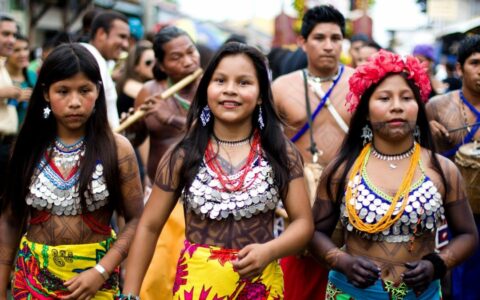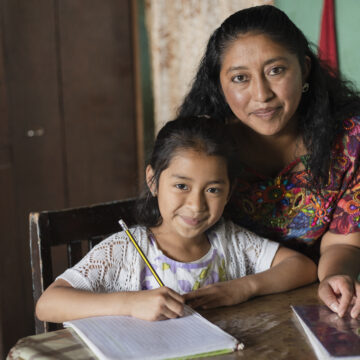TC supports the creation of the National Network of Waste Collectors of Bolivia
In the framework of ADELANTE2, Ecuador and Spain provide their support to formalize the activity of waste collectors in Bolivia.
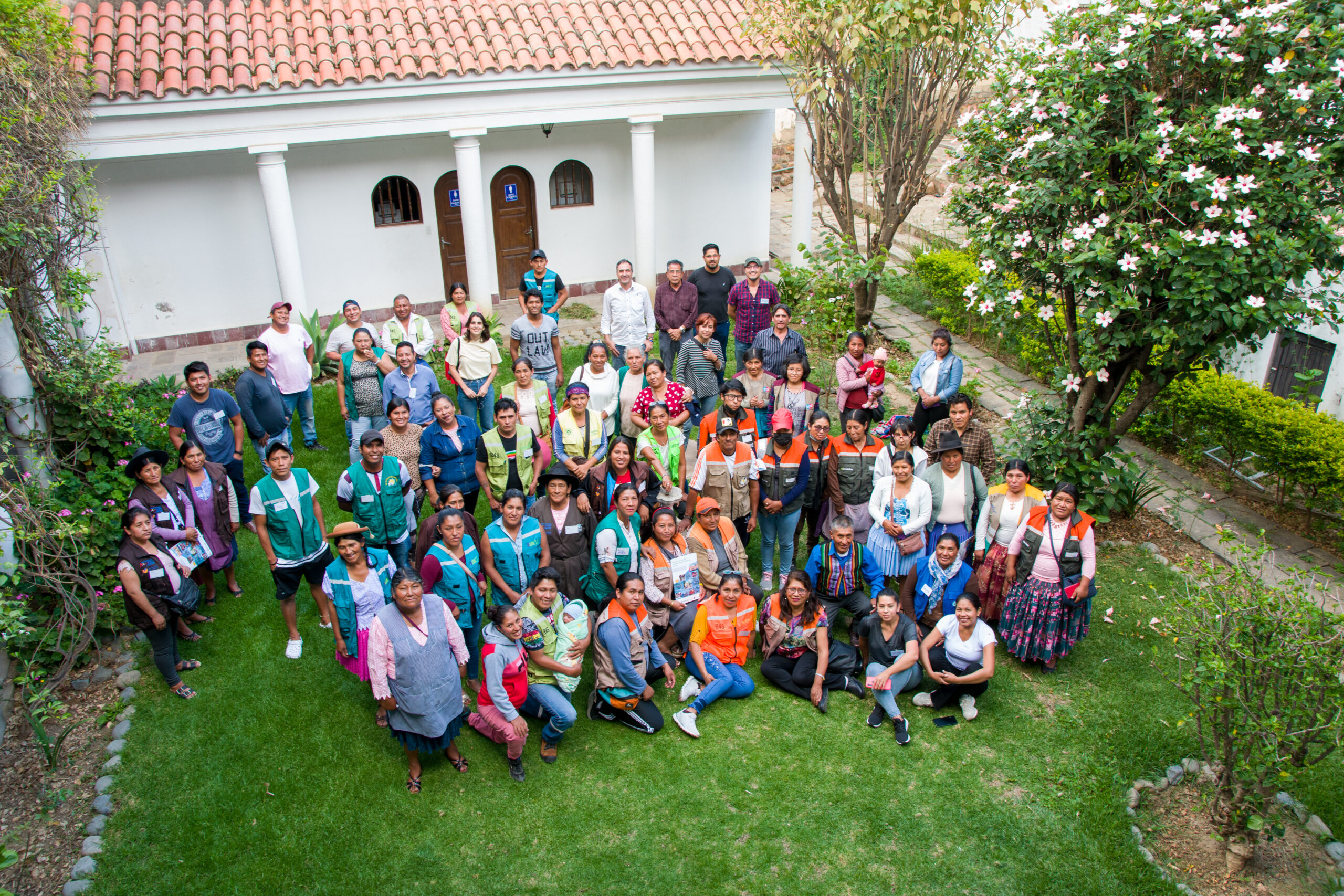
Photograph by R4sgroup (2023).
One of the major challenges brought about by the great growth of cities is waste management. Many Latin-American cities lack an effective recycling system; waste ends up in landfills and its life cycle is utterly reduced. In this context, it is important to highlight the work of waste collectors, who make profit of the small amount of recyclable waste, reducing pollution and contributing to a better use of these resources.
However, the recognition of the economic activity of these workers is insufficient and it usually corresponds to a sector of the informal economy, representing “an enormous saving for the public budget, benefiting not only cities and States, but also the population in general” (Women in informal employment: globalizing and organizing – WIEWO, 2019, p. 8).
Hence, the need to provide waste collectors -specifically in Bolivia- with tools that would allow them to defend their rights while making their work visible and facing the challenge of managing recyclable materials, became evident.
This is how the initiative in the framework of the Adelante Window originated. Its objective was to formalize a network of waste collectors in Bolivia, as a tool for social action, political advocacy and for the protection of their rights (ADELANTE2, 2024). The Association of Solid Waste Recyclers – Bolivia Unida, as the recipient institution, led the coordination -with the country’s different associations of recyclers- to generate the conditions for the formalization of the national network. The National Network of Recyclers of Ecuador (RENAREC by its Spanish acronym), in turn, as the first provider, provided training and capacity building based on its process, origins, formalization and first years of management. The Spanish institution Roots for Sustainability (R4S) also contributed to capacity strengthening through training, as second provider. Additionally, this project had several collaborating entities such as the Latin-American Network of Recyclers (Red LACRE by its Spanish acronym), and the Women Recyclers’ Network and the Recyclers’ Association of Santa Cruz.
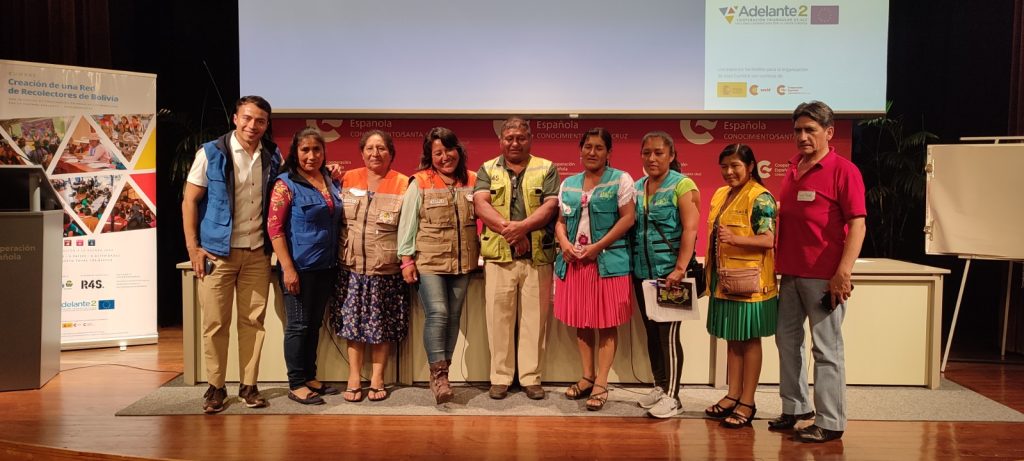
Photograph by TodosNube (2023)
The initiative aimed to ensure that the associations that were part of the national network of waste collectors of Bolivia would have the necessary capacities to participate in the design of an official structure and in the development of its legal bases. In addition, an entrepreneurial vision was fostered through sustainable management and social entrepreneurship (ADELANTE2, 2024).
The project was implemented between 2022 and 2023 and included eight activities, mostly onsite. A series of workshops were held in five Bolivian cities (Santa Cruz de la Sierra, Sucre, Potosí, Tarija and Cochabamba), where the benefits of associativity were presented. A seminar was then carried out in Sucre, where each city shared its expectations for this future network. During this seminar, RENAREC presented its experience in terms of its creation and management at the national level in Ecuador, and Red LACRE described other experiences in the region.
Following this exchange, another cycle of workshops was held in the five cities, which focused on the requirements for the formalization of associations, and on training for association management. A second seminar for leaders of the associations of waste collectors was organized in Cochabamba to complete the training process and in order to present the progress made for the formalization of the future national network. The entire activity was supported by two consultancies that provided legal support to set up the national network, and IT support for the creation of the network’s web page and app.
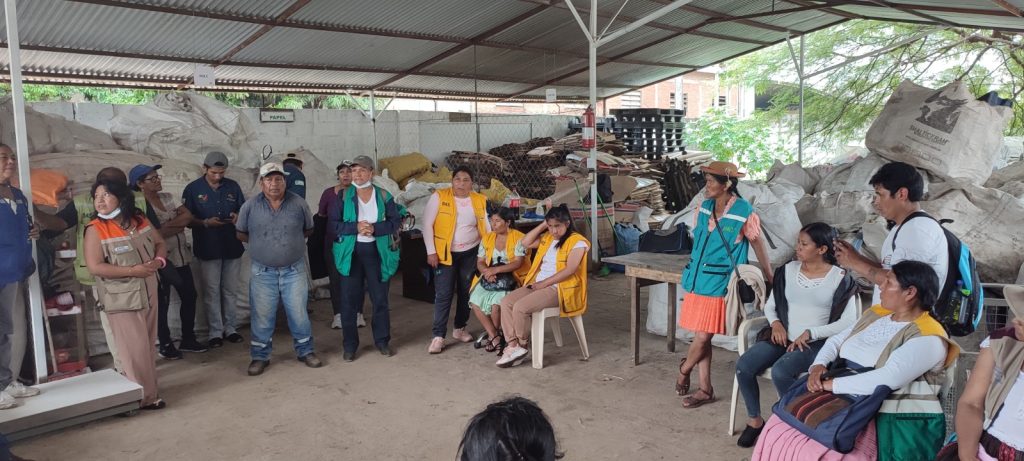
Photograph by TodosNube (2023)
The project concluded with a seminar in Santa Cruz de la Sierra, with all the associations that participated in the process and with relevant public and private stakeholders. The results of the initiative, which directly benefited 1,098 people, were socialized during this event, and the creation of the Bolivian Network of Waste Collectors was finally formalized.
August 2024
***
Source: SEGIB based on Agencies and Directorates-General for Cooperation, ADELANTE2 (2024) and Women in informal employment: globalizing and organizing – WIEWO (2019).
Photographs by TodosNube (2023) and R4sgroup (2023).
